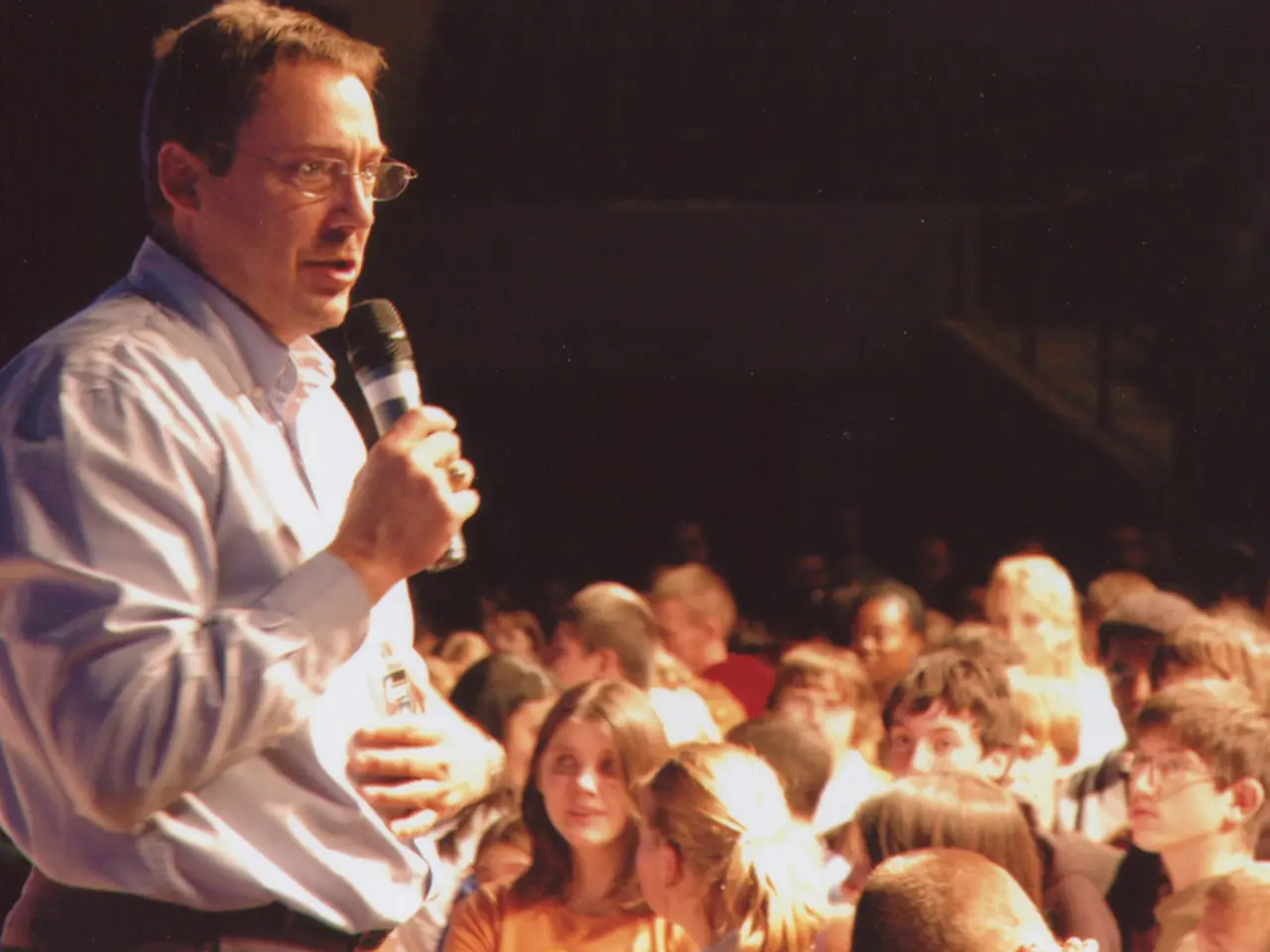High school debaters unite on the discussion platform
In the heart of Des Moines, Iowa, over 7,000 middle and high school students, including Macon Smith, a 17-year-old high school junior from a far-off location, gathered for the National Speech and Debate Tournament. This prestigious event, run by the National Speech and Debate Association, celebrated its 100th anniversary. The association, which boasts nearly 3,800 public and private high schools and middle schools as its members, plays a crucial role in fostering civil discourse and empathy in a polarized society.
Macon, a participant in the Lincoln-Douglas Debate, spent a year preparing for his competition, dedicating two days a week after school to practice and researching his arguments. His debate topic was no less challenging - violent revolution as a just response to political oppression. However, the venue for his debate was a nearly empty classroom 1,000 miles from his home.
Meanwhile, in a different part of the country, Callista Martin, a 16-year-old rising senior from Bainbridge High School in Washington state, found herself in a similar situation. With a lack of coaches, Callista took it upon herself to coach her classmates and herself for the debate club at her school. She and Macon met online this year to scrimmage before the tournament.
The tournament offered more than two dozen categories, such as Original Oratory and Big Questions, providing a platform for students to showcase their skills. Angad Singh, a student from Bellarmine College Preparatory in California, made headlines by winning the national prize in Original Oratory for his speech on his Sikh identity and the phrase "thoughts and prayers" commonly repeated by American leaders after a tragedy.
In a world where open discourse can be restricted by social or institutional pressures, debate serves as a beacon of free speech and critical thinking. It empowers youth like Macon and Callista to engage openly and thoughtfully with diverse ideas, fostering empathy and understanding.
The skills developed through high school speech and debate are invaluable in today's society. Students learn to engage respectfully with difficult topics, listening carefully and asking thoughtful questions rather than dismissing opposing views. This embodies the ideal of civil discourse, as seen in higher education environments like Princeton, where students argue both sides of controversial issues to build empathy and critical thinking.
Being required to argue positions different from their own compels students to understand the reasoning behind alternative viewpoints, deepening their capacity for empathy. This process challenges preconceived notions and sharpens moral reasoning. Speech and debate also instill the idea that disagreement can be constructive rather than divisive, a crucial outlook for navigating polarized social and political climates.
Moreover, the foundations of debate echo broader societal calls to overcome polarization by focusing on shared problems rather than zero-sum conflicts. Empathy and understanding cultivated in debate may contribute to solidarity rather than further division.
In conclusion, high school speech and debate serves as a significant educational tool for cultivating a generation better equipped to engage respectfully and empathetically in a fractured society, thus fostering civil discourse essential for democratic and pluralistic coexistence.
- The skills acquired through high school speech and debate, such as engaging with diverse ideas, empathy-building, and critical thinking, are crucial for personal growth and education-and-self-development, highlighting their relevance in today's society.
- Inequality in the quality of educational resources and opportunities, such as coaching and resources, is evident in the stories of Macon and Callista, who have found innovative solutions to enhance their learning experience and self-development.
- As we strive to overcome societal polarization, the values cultivated through high school speech and debate, including the understanding that disagreement can be constructive, are an essential part of the development of a more empathetic and inclusive society, fostering innovation and educational advancements.




